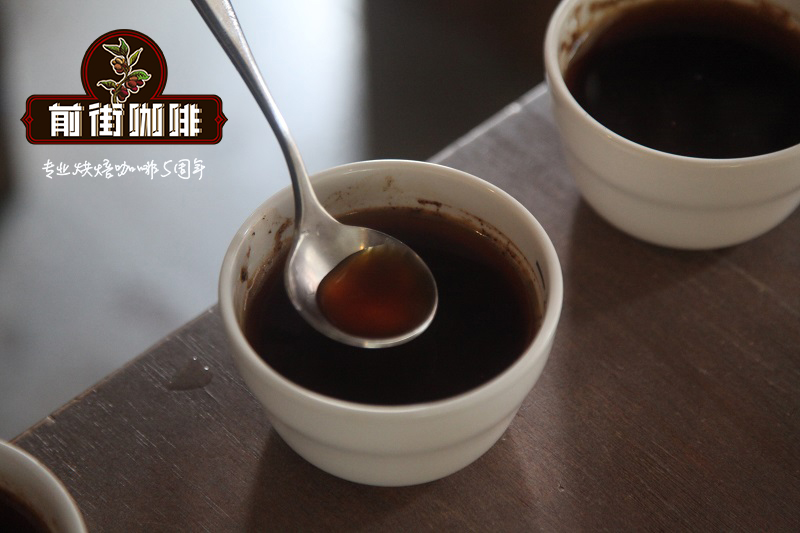How to use the coffee pot in Turkey? Is the Turkish coffee good? How to make Turkish coffee

Professional coffee knowledge exchange more coffee bean information please follow the coffee workshop (Wechat official account cafe_style)
[legend of Coffee]
Although European and Arab historians have collected many mysterious oral stories, which originated from the Queen of Sheba in Africa before 500 AD, according to the written records handed down, only in the first half of the 15th century, coffee is already a well-known plant, and people can drink coffee. In the first coffee monograph "healthy drinks" (De Saluberrima potione) in 1671, Antonio popular Friar Antonio Fausto Naironi told the legend of the Ethiopian shepherd Kaldi. One night Cody's sheep did not come back from the ranch, so he went out to look for them. The next day he found them bouncing and munching beans by a clump of green trees full of bright red fruit. The shepherd was intrigued by the strange behavior of the sheep, so he tasted the wild fruit and found it very exciting. Cody therefore embarked on a long journey to the Chehodet Monastery in Yemen at the southern tip of the Arabian Peninsula to tell the monk what he had found. One cleric said: "this is the devil!" Throw these red fruits into the fire, and the fruit immediately emits a mouthwatering special aroma. They then collected the beans, ground them into powder and poured them into containers filled with hot water, and the world's first cup of coffee came out. The monk found that this bitter dark drink kept them awake and focused on prayer. News of the magical effect of this delicious drink spread among monasteries, and coffee began to be seen as a real gift.
The legend of Mohamed may be relatively unknown. One day the prophet suddenly felt sleepy, so the archangel Gabriel came to help and gave him a potion given by Alazin himself. Mohamed felt refreshed after drinking it and went on with his great career. In this legend, the drink, which is as dark as the Caba Holy Black Stone (Holy Black Stone of the Kaaba), is called gahwah, indicating that the drink is derived from plants.
The long journey of coffee has since begun in Africa, but there is still a long way to go. It is said that in the 13th century, slaves from Sudan to Arabia gathered coffee fruits in Ethiopia, which they believed would help them tide over the difficulties. Maybe that's why coffee beans crossed the Red Sea for the first time and spread all over the world.
In Middle Eastern countries, coffee is considered to be effective, and caffeinated drinks that contain a lot of caffeine were originally drunk as soups and later became daily drinks.
According to Islamic folklore, Sheikh Omar (Sheikh Omar) was the first Arab to discover coffee and turn coffee beans into drinks. He was a doctor and a clergyman who was exiled with his followers to the desert of Assab for violating moral standards. In order to stop their hunger, Omar and his companions collected wild berries growing in unknown bushes, boiled them and drank the soup. It is said that they got the idea from a dream. Some of Omar's patients followed him into the desert in order to continue their treatment, and the plant must have helped their condition. When the exiles returned to their hometown of Mocha, they told others about the magical properties of the new drink. The locals built a temple in memory of Omar and regarded him as the patron saint of the city.
In addition, Sufi followers (ascetic monks living in the Yemeni desert in southern Arabia) are also said to be familiar with the refreshing drink. They hold religious ceremonies to celebrate the glory of Allah, sometimes lasting more than 700 nights, during such long gatherings, they drink coffee to stay awake. Devout believers also enjoy coffee with friends during the day and enjoy the refreshing effects of caffeine, and the first caf é s were born.
[Turkish coffee practice]
Making a unique Turkish coffee-it takes one step at a time. In the golden copper pot, stacked with fine loess sand, this novel coffee utensils are necessary to brew standard Turkish coffee. Choose deep-roasted coffee beans and grind them into a very fine powder. The fineness of Turkish coffee required by is the best of all kinds of bubble methods, requiring very fine grinding, and the intuitive standard is to be finer than flour. Then mix the spices such as cloves, cardamom and cinnamon. Then put 100ml of cold water in the Turkish coffee pot. Then add about 10 grams of coffee powder. 100ml water + 10g powder is the golden ratio of a cup of coffee. The brewing method of Turkish coffee is quite special. Add coffee powder and cold water to the Turkish coffee pot, put it in the hot loess sand, and slowly circle around it. "this is the way Turkish coffee is heated!" Then when the water temperature is close to boiling and the coffee is about to gush out of the copper cup, it is quickly poured into the coffee cup, and a cup of fragrant Turkish coffee is finished.
[how to drink Turkish coffee]
If you are still wondering when the coffee powder in Turkish coffee will be completely dissolved? Answer: don't stir it. What is special about Turkish coffee is that it is unfiltered, so it tastes particularly mellow, which means you have to drink it with coffee grounds when you enjoy it. The roasted and ground coffee beans are boiled in a Turkish coffee pot called Cezve, followed by a cup of mellow coffee.
The most important feature of Turkish coffee is that it does not filter out the coffee powder. Miraculously, it does not drink the powder while sipping the delicious coffee liquid, because the coffee powder is ground so fine that it will sink completely to the bottom of the cup. Turkish coffee is very special, not only the taste is solid, but also the sweet and sour taste of the fruit can be completely preserved, which is tantamount to blending the delicacy of ESPRESSO and hand-made coffee into the same cup of coffee at the same time. It is really an amazing taste experience!
Important Notice :
前街咖啡 FrontStreet Coffee has moved to new addredd:
FrontStreet Coffee Address: 315,Donghua East Road,GuangZhou
Tel:020 38364473
- Prev

How should Turkish coffee be made? What is Turkish coffee? How to use the coffee pot in Turkey
Professional coffee knowledge exchange more coffee bean information Please follow the coffee workshop (Wechat official account cafe_style) mention coffee, the first thing that comes to mind is either Italy or the United States, but this addictive black drink was first widely circulated in the Arab world. If it were not for the bag that Turkey left behind during its retreat from the siege of Vienna in the 16th century
- Next

How to make a good cup of coffee in a Turkish pot? How do you make Turkish coffee?
Professional coffee knowledge exchange more coffee bean information please follow the coffee workshop (Wechat official account cafe_style) [the origin of coffee] first talk about the origin of coffee, there are many versions of the legend, although the authenticity is not high, but I think it is quite interesting. First, in the 9th century, Ethiopian shepherds found that his sheep became very excited after eating a kind of fruit, and then found
Related
- What is the meaning of lactic acid fermentation with coffee bean treatment?
- How to judge the state of foam by sound?
- How does the latte pull out the unicorn pattern? Come to get for a little trick to improve the flower pull!
- Will flower pulling affect the taste of the latte?
- Do you know the history of coffee?
- The difference between honey treatment and sun washing what is raisin honey treatment?
- What kind of milk can a novice use to make coffee foam to keep the foam longer? The correct method and skills of milking tutorial sharing
- Why do washed coffee beans taste sour? Flavor characteristics of washed Coffee
- Introduction to the skill of how to practice the size and height of water injection around the circle of hand-brewed coffee
- How do beginners practice coffee flower drawing from scratch?

